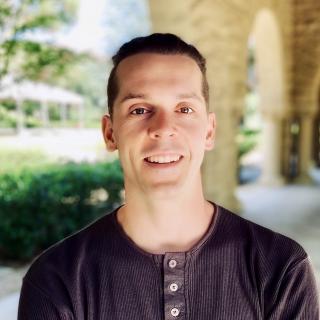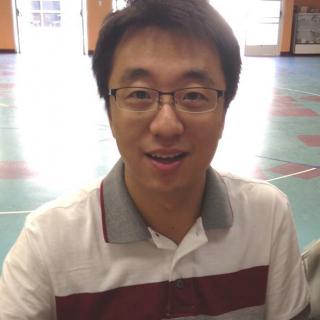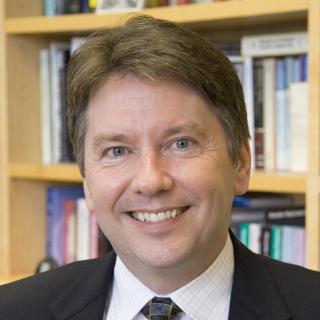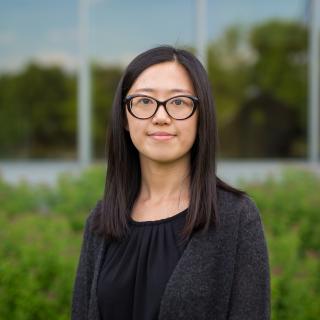Director
Adam Arkin is the Dean A. Richard Newton Memorial Professor in the Department of Bioengineering at the University of California, Berkeley and Senior Faculty Scientist at the Lawrence Berkeley National Laboratory. He and his laboratory develop experimental and computational technologies for discovery, prediction, control and design of microbial and viral functions and behaviors in environmental contexts.
He is the chief scientist of the Department of Energy Scientific Focus Area, ENIGMA(Ecosystems and Networks Integrated with Genes and Molecular Assemblies, http://enigma.lbl.gov), designed to understand, at a molecular level, the impact of microbial communities on their ecosystems with specific focus on terrestrial communities in contaminated watersheds. He also directs the Department of Energy Systems Biology Knowledgebase (KBase) program: (http://kbase.us) an open platform for comparative functional genomics, systems and synthetic biology for microbes, plants and their communities, and for sharing results and methods with other scientists. He is director of the newly announced Center for Utilization of Biological Engineering in Space which seeks microbial and plant-based biological solutions for in situ resource utilization that reduce the launch mass and improves reliability and quality of food, pharmaceuticals, fuels and materials for astronauts on a mission to Mars. Finally, he is the Co-Director of the Berkeley Synthetic Biology Institute, which brings together U.C. Berkeley and Lawrence Berkeley National Laboratory Scientists with Industry Partners to forward technology and applications for sustainable biomanufacturing.
Division Director

Craig Criddle is a Professor in the Department of Civil and Environmental Engineering at Stanford University, and a Senior Fellow at the Woods Institute for the Environment. He is the Institutional Co-I for CUBES at Stanford and the lead of the Biofuel and Biomaterials Manufacturing Division of CUBES.
Dr. Criddle is interested in the environmental engineering, science, and science literacy needed for clean water, clean energy, and healthy ecosystems. His research focus is environmental biotechnology. He is best known for large interdisciplinary field projects, studies of microbial
ecology in bioreactors, and work on microbial transformations of persistent contaminants. Some current projects include a field-scale evaluation of uranium remediation; DNA-monitoring of microbial community structure at full-scale biological wastewater treatment plants; development of membrane bioreactors for energy recovery and nutrient removal; and studies to elucidate the mechanisms and kinetics of microbial transformation of halogenated solvents. To promote science literacy, he worked with award-winning San Francisco cartoonist, Larry Gonick to write "The Cartoon Guide to Chemistry." "Cartoons can give us an intuitive feeling for the why, and deeper understanding can grow from that intuition."
Faculty

Brooks Abel is an Assistant Professor in the Department of Chemistry at the University of California, Berkeley and staff scientist in the Materials Science Division at LBL. He received a B. S. in Polymer Science and a Ph.D. (2016) in Polymer Science and Engineering (NSF Graduate Fellowship) from the University of Southern Mississippi. His Ph.D. work under the advisement of Prof. Charles McCormick focused on synthesizing stimuli-responsive water-soluble polymers using controlled radical polymerization methods for applications such as drug delivery and water remediation. Following his graduate studies, he worked as a postdoctoral researcher with Prof. Geoffrey Coates at Cornell University (2017-2021) where he developed bifunctional Lewis acid catalysts for the alternating ring-opening copolymerization of epoxides and cyclic anhydrides to synthesize well-defined polyesters. While at Cornell, he also developed a new living cationic ring-opening polymerization of cyclic acetals, enabling the synthesis of high molecular weight polyacetals thermoplastics capable of near-quantitative chemical recycling back to monomer. His independent research interests lie in the areas of sustainable polymer organic chemistry, ionic polymerizations, catalysis, polymer stereocontrol, and polymer recycling.

Nils was formerly a member of the academic research staff as part of the Criddle-lab at Stanford University. For CUBES he is developing microbial cell factories that convert C1-carbons into high-performance polymers that can serve as materials for consumables and durable goods. He is also an Analog Astronaut, demonstrating biomanufacturing capabilities in the field (at a Space Exploration Analog and Simulation Habitat), as a proving ground for Mars. Will join University of Florida as assistant professor.
Technical Staff

Allie graduated from the University of Georgia with a BS in Microbiology and a BA in Music, where she studied protein-lipid droplet localization behaviors in yeast models in the Starai Lab. She has previously interned in the Foster Lab to examine the effects of simulated microgravity on animal-bacteria symbioses in order to understand how spaceflight alters host-microbe interactions. Currently, she is working in the Averesch Lab to research bioplastic production through microbial engineering. She hopes to pursue a PhD to explore solutions to existing challenges in space biology, biotechnology, and environmental sustainability. In her free time, she enjoys playing piano, learning traditional Chinese instruments, and crocheting.
Postdoctoral Scholar

Dr. Aaron J. Berliner is a postdoctoral scholar at the University of California Berkeley, as well as the major domo of the NASA-funded Space Technology Research Institute (STRI) CUBES (Center for the Utilization of Biological Engineering in Space). He obtained both his Ph.D. in Bioengineering under Dr. Adam Arkin and his M.S. in Nuclear Engineering under Dr. Bernstein from UC Berkeley in 2022. Prior to this, he studied biomedical engineering, and synthetic & systems biology at Boston University. Dr. Berliner began his career at the NASA Ames Research Center under Dr John Hogan and Dr. John Cumbers, where he worked on projects involving 3D printing, bioelectrochemistry, and astrobiology. In 2013, he joined the Life Sciences group of Autodesk Research in San Francisco, working on diverse projects such as bioprinting, software engineering, synthetic virology, and DNA origami. Accepting that he had caught the “space bug,” he returned to academia to help establish CUBES and begin work on Crucible, an open-source reactor for space synthetic biology experiments.
With a strong background in bioengineering, nuclear engineering, and systems engineering, Dr. Berliner has made significant contributions to the field of Space Bioprocess Engineering (SBE), an interdisciplinary field integrating bioengineering principles to develop biotechnologies for long-term space missions. His primary focus has been designing a biomanufactory-driven reference mission architecture for human exploration of Mars, aiding space agencies in their mission planning by providing parametric designs on requirements and operational aspects driven by specific biological systems, including advanced life support, biological and chemical manufacturing, and in situ resource utilization (ISRU). Dr. Berliner's vision is to harness living systems to support off-world biomanufacturing, realizing the inherent mass, power, and volume advantages offered by biotechnology over traditional mechanical and chemical approaches. His expertise and commitment to the field in the integration of bioengineering into human space exploration has most recently been acknowledged with his acceptance of a lectureship at UC Berkeley in the new Program in Aerospace Engineering.

Sulogna Chatterjee is a Postdoctoral Fellow in Criddle-group at Stanford University where she is working on Metabolic Engineering of autotrophic microorganism for better carbon efficiency and production of high-performance bioplastics.
Dr. Sulogna is a DST Inspire Fellow, holds a PhD degree in "Environmental Biotechnology & Microbiology" from "CSIR- Indian Institute of Chemical Technology", India. Her research interest is carbon conversion, waste valorization, bioprocess designing, bioreactor operations, fermentation technologies, bioenergy production and circular biorefinery systems.
During her PhD she has published several high impact research papers and has been awarded the “Research Excellence Award” by BRSI-India and "Best Research Fellow Award" by CSIR-India. She has also represented 'India' in C3E- Women in Clean Energy Education Empowerment Symposium organized by U.S Department of Energy, MIT Energy Initiative, Stanford Energy and Texas A&M University, 2019.

Zohaib Siddiqi was born in Brooklyn, New York, but was raised in the Bay Area, California. He pursued his B.S. in chemistry at the University of Michigan Ann Arbor, where he conducted research on melt-cast energetic materials with Professor Adam Matzger and MOF supported homogeneous catalysts with Professor Melanie Sanford. He obtained his Ph.D. in 2023 under Professor David Sarlah at the University of Illinois Urbana–Champaign, where his work was focused on the dearomative oxidation of aromatic and heteroaromatic compounds, as well the dearomatization of commodity polymers. Afterwards, Zohaib joined the lab of Professor Brooks Abel at the University of California Berkeley, where his work will be focused on developing novel methods for controlled cationic ring opening polymerizations.

Sunggeun Woo earned his B.S. and M.S. from Yonsei University in South Korea. During his B.S. and M.S. programs, he studied in the civil and environmental engineering department and he narrowed down his research focus to environmental biotechnology in his M.S. program, where he wrote fifteen papers for about two and a half years including five of them as the lead-author. At that time, the research topics were various in the field of environmental biotechnology including wastewater treatment systems, isolation and cultivation of microorganisms and harnessing renewable bio-diesel from microalgae. Based on the wide range of understandings, Sunggeun Woo joined the Criddle group for his Ph.D. program in September, 2012 focusing on the Coupled Aerobic-anoxic Nitrous Decomposition Operation (CANDO) project. Sunggeun Woo participated in developing the CANDO process which produces a renewable energy, nitrous oxide (N2O), from nitrogen pollutants through microorganisms. During his Ph.D. program, Sunggeun Woo's main focus was to elucidate the microbial members that produce N2O and the metabolic pathways in them related to N2O and polyhydroxybutyrate (PHB) production. He graduated from Ph.D. program in January, 2018 and he is now continuing his research as a post-doctoral scholar in the Criddle group. His research is currently focusing on the recovery of renewable energy and materials from waste or wastewater using microorganisms.
Graduate Student

Jackson is primarily interested in the discovery and creation of novel biological systems that can be used in faucets of bioremediation, human health, and space exploration. He has researched bacteriophages in depth, has discovered and annotated novel phages, and has investigated bacteriophage mechanisms of lysis. He has also done bioinformatics work regarding intrinsic disorder in Merkel Cell Polyomavirus and has explored HECTD3's involvement in cancer. He is a proponent of undergraduate research and learning and has developed a program to certify undergraduates in basic lab techniques to better prepare them for academic research. Currently, he is pursuing a PhD at UF and is teaching, taking courses, and working with Dr. Averesch researching bioplastic production.

Born and raised in Salt Lake City, Utah. Obtained my bachelor’s in graphic design from the University of Utah where I also commissioned into the US Air Force. Received my master’s in Human Services: Health and Wellness from Liberty University. I am leaving active duty for a couple of years to finish my master’s in microbiology and gain experience in the field.

Vrinda Sharma is a graduate student in the CEE department at Stanford. She is working in the Criddle group on engineering autotrophic microorganisms for P4HB polymer production. She received a B.A. in Biological Sciences from Cornell University in 2022 and worked on impact of biocides like Triclosan on soil microorganisms Stenotrophomonas maltophilia in Hay Lab. Post graduation, she worked as Research Associate I in the Microbial Engineering team in Pivot Bio where she got interested in synthetic biology for environmental applications
Wienke is a graduate student in the Bioscience Engineering program at Ghent University, specializing in biochemistry and biotechnology. Currently, she is a visiting student intern at the University of Florida, collaborating with Dr. Nils Averesh on microbial physiology and metabolic engineering, with a particular focus on carbon metabolism and biopolymer synthesis.
Her ongoing research, a collaboration with Lucerne University of Applied Sciences and Arts and the European Space Agency (ESA), investigates the effects of microgravity on gene expression patterns in intervertebral discs (IVD), offering insights into cellular adaptation in space environments.
Previously, Wienke worked on projects involving the engineering of advanced enzybiotics as next-generation antimicrobial agents, employing molecular biology techniques to develop effective treatments. She has also focused on enzyme immobilization, using concanavalin A to create carriers for β-galactosidase, and contributed to the development of designer cellulosomes for biofuel production by optimizing enzyme cascades for efficient biomass degradation.
Undergraduate Student

Snigdha is an undergraduate at UC Berkeley (Class 2025) studying Genetics and Plant Biology. She is working with Dr. Sander on the CUBES project investigating the growth coupling of polyhydroxyalkanoate production in species of Cupriavidus for applications in space exploration. She is interested in studying the genetic engineering of metabolic pathways in bacteria and algae, especially in the broader context of sustainability.

Hanen is an undergraduate at UC Berkeley studying Bioengineering. He is interested in utilizing computational and synthetic biology to reduce plastic pollution, develop new drugs and diagnostics, and improve food production and the environment, especially in poorer regions of the world. At CUBE, he is focusing on engineering microbes to produce bioplastics useful for applications in space missions as well as on Earth.
After undergrad, Hanen plans to pursue a PhD in bioengineering or biotechnology to grow as a scientist. He aims to start a company one day focusing on using bioengineering to address environmental and food insecurity issues around the globe.
As a San Franciscan native, Hanen enjoys exploring the Bay Area, sports, and reading in his free time.

Xina Wang is an undergraduate student at UC Berkeley studying chemical biology and data science. She is interested in the potential of harnessing biosystems found in nature for applications in biomanufacturing and biomedicine through the intersection of synthetic biology and computational tools. Currently, she is engaged in engineering microbes to produce bioplastics for human space exploration as well as for industrial or environmental applications on Earth.
Alumni

Jeremy Adams is a Ph.D. student in Chemical and Biomolecular Engineering at UC Berkeley, currently working in the Clark Lab. He received a BSE in Chemical Engineering from Arizona State University in 2017. Jeremy’s research interests lie in the intersection of synthetic biology and biochemical engineering, particularly towards the development of sustainable biomanufacturing processes. His work in CUBES involves engineering lithoautotrophic microbes to convert Mars-available resources into useful products, as well as engineering export pathways of those products to simplify downstream separation processes. In his free time, Jeremy enjoys traveling and scuba diving.

Calvin (Tae Hyun) is pursuing his PhD in Civil and Environmental Engineering at the University of Alberta, Canada, under the supervision of Professor Bipro Dhar. His research scholarly pursuits center around advancing microbial electrochemical technologies, focusing on the development of bioelectrochemical sensors for the detection of naphthenic acids in oil sands process water, as well as exploring microbial electrolysis cell-assisted anaerobic digestions and microbial electrosynthesis systems for the conversion of carbon dioxide into biomethane and for biogas upgrading applications. Presently, he is a visiting scholar in Professor Craig Criddle's laboratory at Stanford University. As part of the CUBES project, Calvin works under the mentorship of Professor Craig Criddle and Dr. Nils Averesch, where he is involved in converting methane and methanol into para-hydroxybenzoic acid (pHBA) using methanotrophs through metabolic and genetic engineering. His academic excellence is also recognized through prestigious awards such as the Izaak Killam Memorial Graduate Scholarship and the Canada Graduate Scholarship from the Natural Sciences and Engineering Research Council of Canada.

Doug Clark is the Gilbert Newton Lewis Professor in the Department of Chemical and Biomolecular Engineering and the Dean of the College of Chemistry of the University of California Berkeley.
Dr. Clark’s research interests are in biochemical engineering and biocatalysts. His research is in the field of biochemical engineering, with particular emphasis on enzyme technology, biomaterials, and bioenergy. Current projects include the structural characterization and activation of enzymes in non-aqueous media, the development of metabolic biochips for high-throughput catalysis and bioactivity screening, protein design and assembly for the development of advanced biomaterials, and enhanced conversion of lignocellulosic feedstocks to biofuels.

Kristian is an NSERC post-doctoral fellow in Environmental Engineering and Science at Stanford University. His current research focuses on: Hard-wiring bacteria in a microbial battery, salinity gradient energy production from a mixing entropy battery, and PHB bioplastic production from C. Necator. His PhD was in Chemical and Biological Engineering from the University of British Columbia in Vancouver.

Wakuna is a PhD candidate in the environmental engineering program working with Prof. Craig Criddle. Her research focuses on the microbial degradation of methane in mixtures (biogas and natural gas) for the production of biodegradable polymers called polyhydroxyalkanoates (PHAs). Wakuna is interested in understanding the impact these methane mixtures have on microbial communities, the dynamics between the microbial interactions under certain complex conditions, while optimizing the polymer production process and bacterial growth rates. In addition to research, Wakuna is quite passionate about tutoring and mentoring.

Wenyu Gu is currently a postdoc at Stanford University.

Dr. Gözde Gülseren is a postdoctoral associate in the Averesch Group at the University of Florida, where she is focused on advancing space-based myco-processing technologies. She earned her B.S. in Food Engineering from Istanbul Technical University (ITU) in Turkiye, and completed her M.S. in Food Engineering and Sustainability through a joint program between ITU, the University of Chemistry and Technology in Prague (Czechia), and Centrale Supélec (France). Dr. Gülseren’s professional experience spans food product development and fermentation, areas in which she has applied her extensive academic training. She received her Ph.D. in Food Science and Human Nutrition from the University of Florida, where her research centered on the functionality of edible mycelia. During her doctoral studies, she was awarded a prestigious INFOGEST Short Term Scientific Mission Grant, enabling her to conduct research at the National Research Institute for Agriculture, Food and Environment (INRAé) in France. Dr. Gülseren's academic and professional achievements have been recognized with numerous honors, including the Silver Celebration Award and a third-place finish in the Student Oral Competition by the Institute of Food Technologists (IFT).

Jorge is originally from Chicago where he attended Loyola University Chicago and received his B.S. in Environmental Science with a Chemistry Minor. After his undergraduate studies, he attended Stanford where he obtained his M.S. in Environmental Engineering and where he has continued as a PhD student working with Professor Craig Criddle. His research focuses on biotechnology with an emphasis on efficiently utilizing waste streams to produce biological materials (e.g., bioplastics, biofuels). As part of the CUBES effort, Jorge's research involves identifying organisms that can thrive on the limited amount of resources available for long-range space travel.

Vince is a first-year Ph.D. student in chemistry at Stanford University; he is interested in creating biodegradable organic materials as well as designing materials processing techniques such as additive manufacturing in order to make functional parts from biodegradable materials feasible for replacing petroleum based plastics. His role in CUBES will be to create and optimism polymeric systems based on methanotrophic polyhydroxyalkanoate production for the closed-loop manufacturing of tools. Before starting his graduate work at Stanford, he studied mechanical engineering and chemistry at Colorado School of Mines where he created block copolymer materials for hydrogen fuel cell membranes and computed degradation mechanisms for small molecule bis-azide species. He also worked as a design engineer at RICOH where he designed, 3D printed, and tested small parts for improving large-scale ink-jet printer functions. Vince likes to hike and carve wood in his free time.

Max Perko is a third year chemistry undergraduate at Stanford, studying biosynthetic polyester vitrimers for additive manufacturing in the Waymouth lab. His research is being performed in conjunction with that of Vince Pane (of the Waymouth lab) and the Criddle lab (Stanford Biology), for the Center for the Utilization of Biological Engineering in Space (CUBES) on their Mars exploration project.

Tiago is a visiting doctoral student from the Humans on Mars project of the University of Bremen, Germany. As a part of his doctorate project, he is looking to convert cyanobacterial biomass produced on Mars from in-situ resources into a plant fertilizer and other products of interest. To carry out this conversion both anaerobic digestion and bioelectrochemical systems are employed and explored within a wet lab and modelling context. The overarching goal is to explore Mars sustainably by harnessing local resources and reducing shipped payload mass. During his research stay, he will be working on the bioplastic production by C. necator and the modelling of the cyanobacterial biomass processing.
Chris Szikszai worked with the Waymouth group, summer of 2017, testing feasibility of extruding and printing PHBV (poly-3-hydroxybutyrate-co-3-hydroxyvalerate). Aided by Professor Dan Strauss from SJSU and Naomi Clayman, Chris used analytical techniques such as DSC, GPC, and an Instron tensile tester to characterize the biopolymer: before extrusion, prior to printing, and after printing.
Dr. Trenton (Trent) Smith is an Associate Professor of Biology at Simpson University in Redding, California. He received his Ph.D. in the lab of Dr. Vicki Vance at the University of South Carolina in 2001, studying viral suppression of RNA interference in plants. Specifically, he generated and studied suppression of RNAi in transgenic Arabidopsis thaliana expressing the helper component proteinase from Turnip Mosaic Virus. In early 2018, Dr. Smith joined with the lab of Dr. Karen McDonald and Dr. Somen Nandi at UC Davis, as a visiting scientist. He is designing systems to express cell wall-degrading enzymes in potato, as part of the biofuels work of CUBES.
Robert Waymouth is the Robert Eckles Swain Professor in the Department of Chemistry at Stanford University. Dr. Waymouth investigates new catalytic strategies to create useful new molecules, including sustainable polymers, synthetic fuels, and bioactive molecules. In one such breakthrough, Professor Waymouth and IBM researcher Jim Hedrick opened a new path for production of environmentally sustainable plastics and improved plastics recycling, earning recognition in the 2012 Presidential Green Chemistry Award.
The Waymouth Group applies mechanistic principles to develop new concepts in catalysis, with particular focus on the development of organometallic and organic catalysts for the synthesis of complex macromolecular architectures. In organometallic catalysis, the group devised a highly selective alcohol oxidation catalyst that selectively oxidizes unprotected polyols and carbohydrates to alpha-hyroxyketones. The Waymouth group pioneered the development of catalysts that can access multiple kinetic states during a polymerization reaction in order to control sequence distribution. They devised a novel strategy for the synthesis of elastomeric polypropylene utilizing a metallocene catalyst whose structure was designed to interconvert between chiral and achiral coordination geometries on the timescale of the synthesis of a single polymer chain.
In collaboration with Jim Hedrick of IBM laboratories, the Waymouth Group has developed an extensive platform of organic catalysts for the controlled ring-opening polymerization of lactones, carbonates and other heterocyclic monomers. Mechanistic studies of nucleophilic N-heterocyclic carbene catalysts revealed an unusual zwitterionic ring-opening polymerization method which enabled the synthesis of high molecular weight cyclic polymers, a novel topology for these biodegradable and biocompatible macromolecules. In collaboration with the Wender group, the Waymouth group has devised selective organocatalytic strategies for the synthesis of functional degradable polymers and oligomers that function as "molecular transporters" to deliver drugs and probes into cells. These efforts combine elements of mechanistic organic and organometallic chemistry, polymer synthesis, and homogeneous catalysis to rationally design new macromolecular structures.

Liangzi is a graduate student in Criddle-group at Stanford University. She is working on improving the metabolic function in autotrophic microorganisms to enhance carbon efficiency and produce high-performance bioplastics as part of CUBES.
She is interested in sustainable biomanufacturing, bioremediation, as well as carbon capture and utilization.